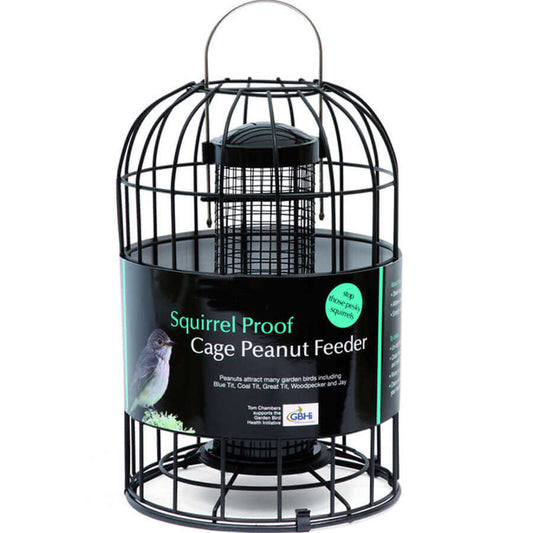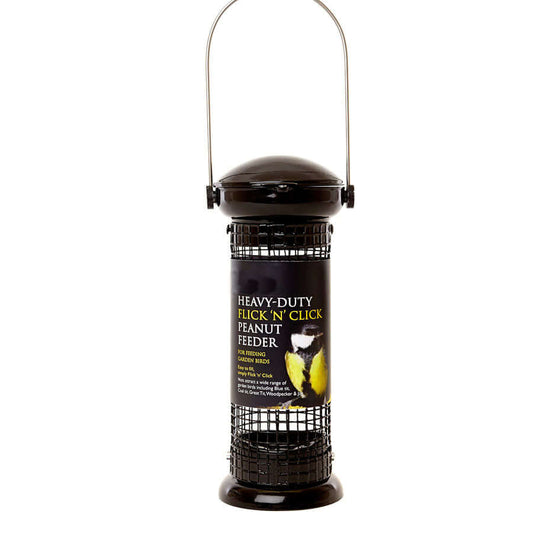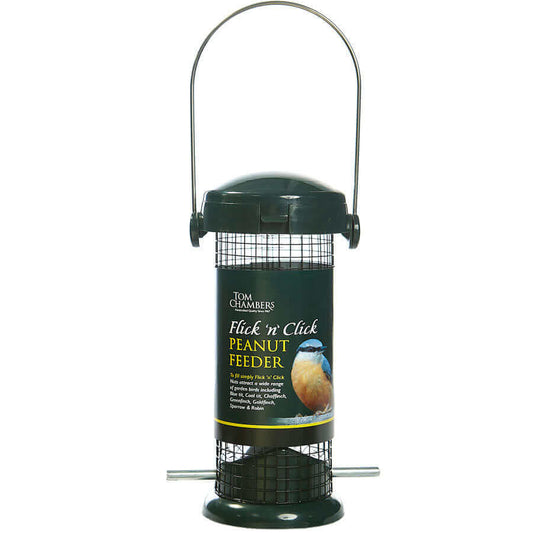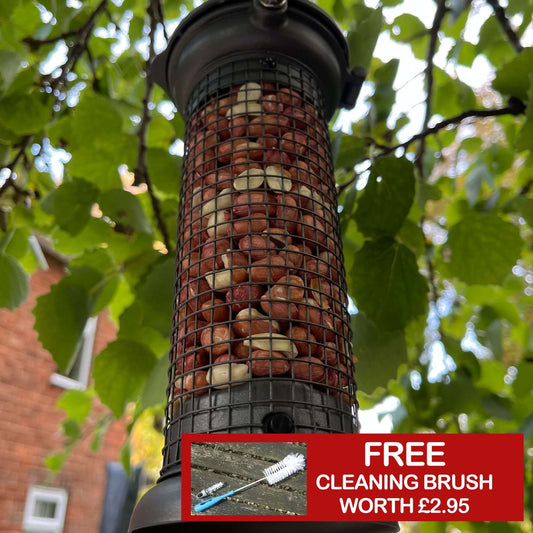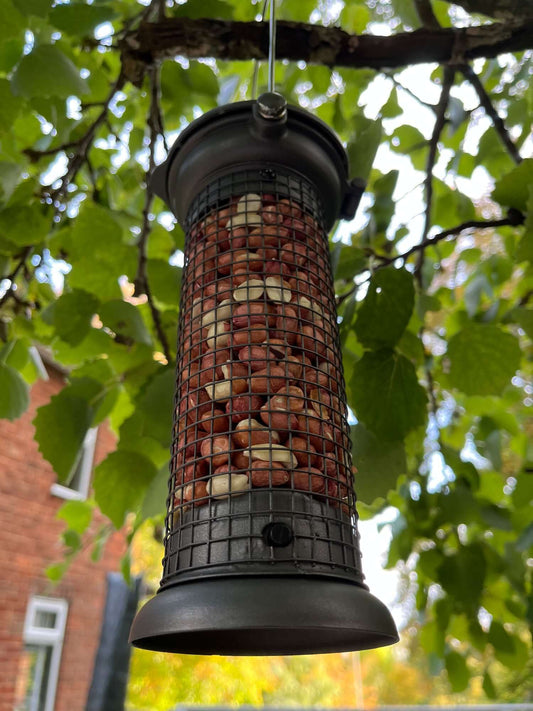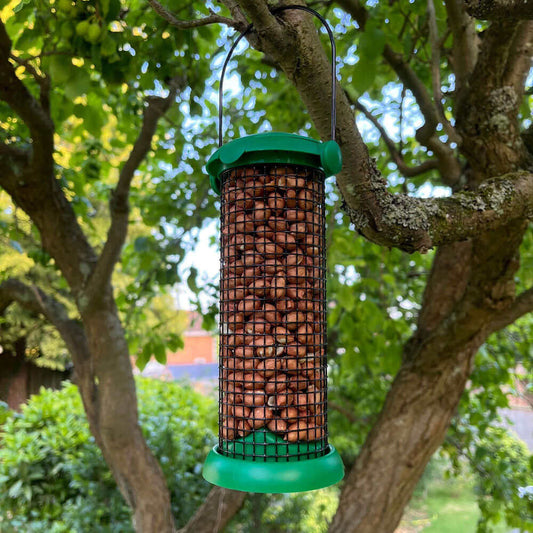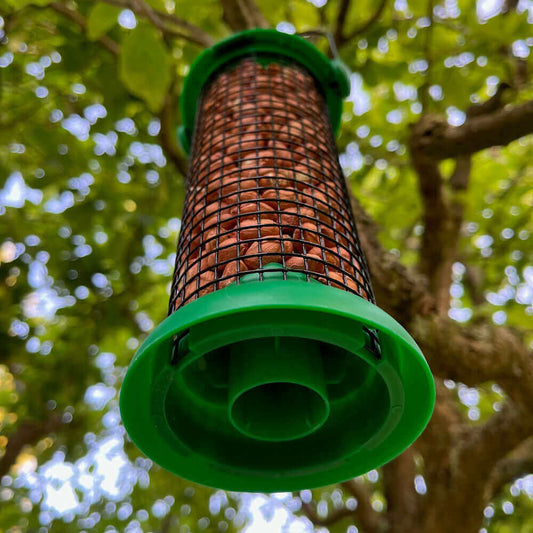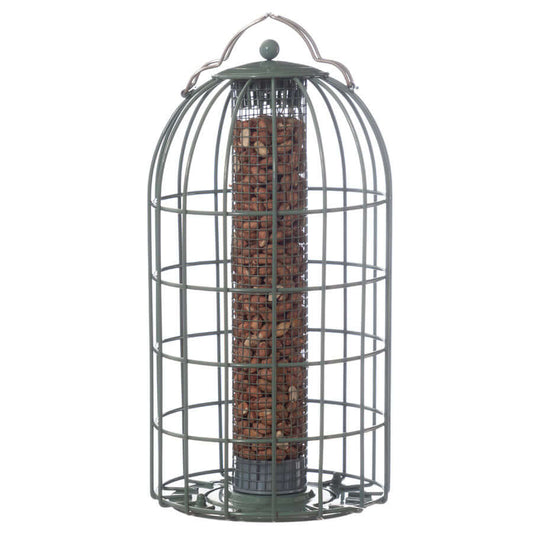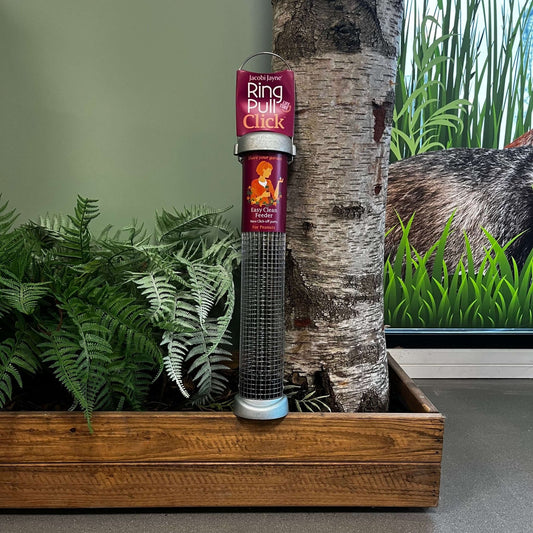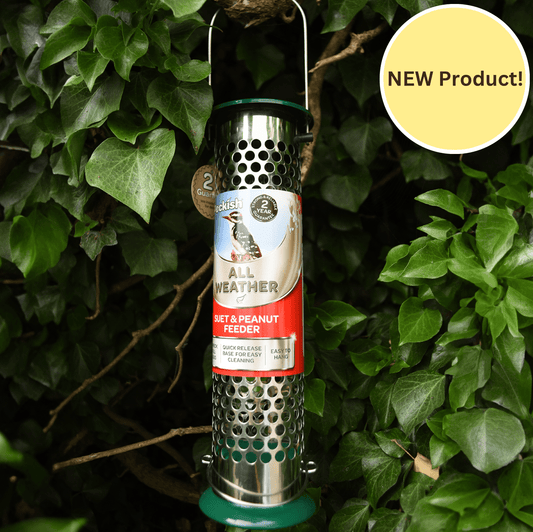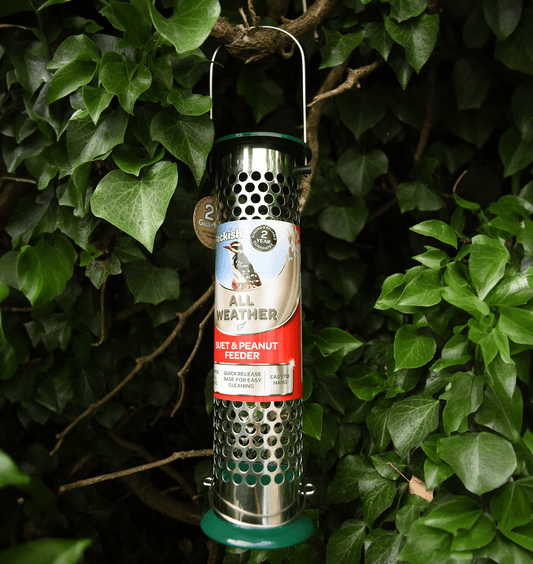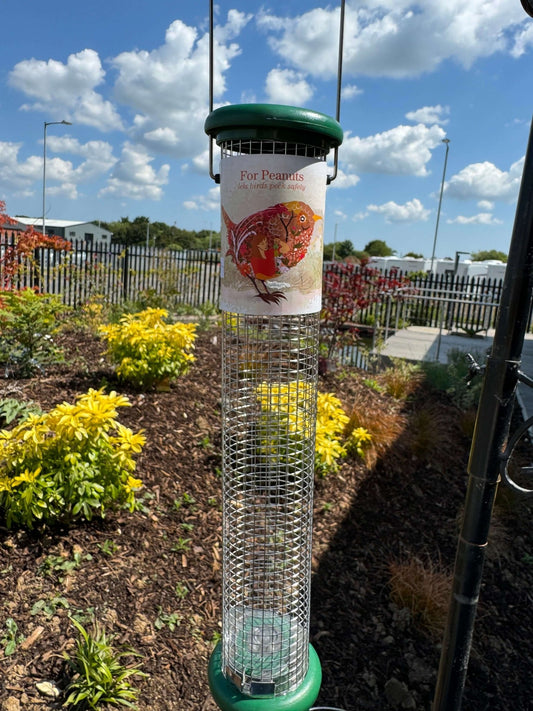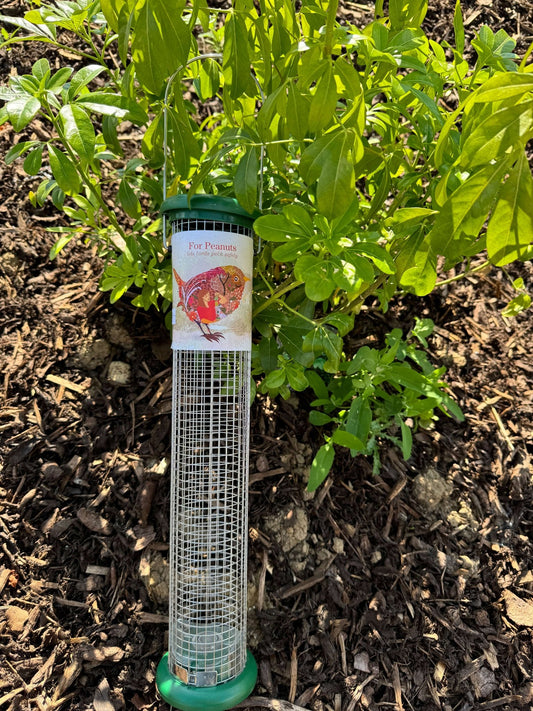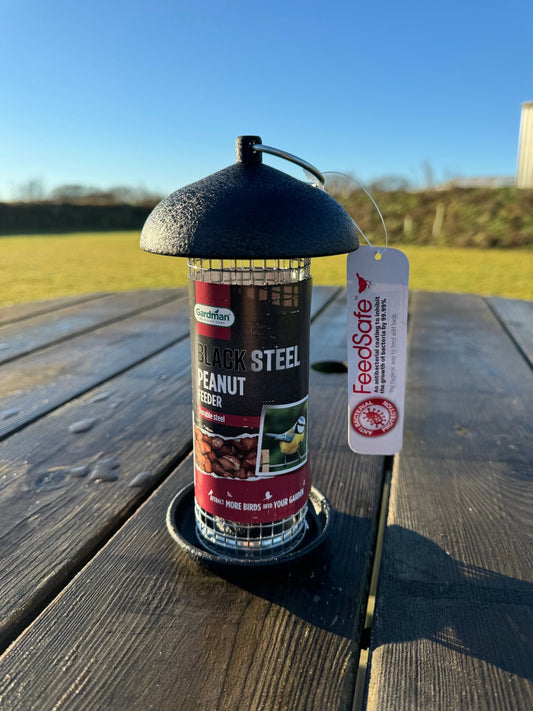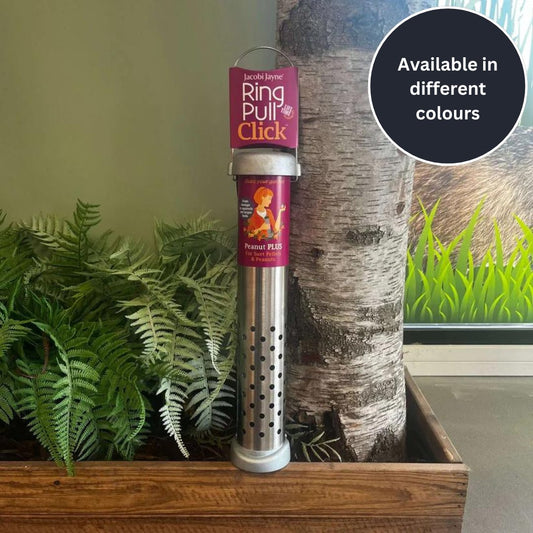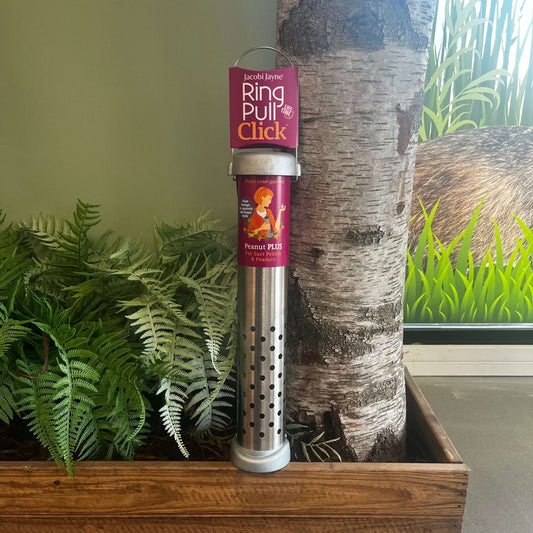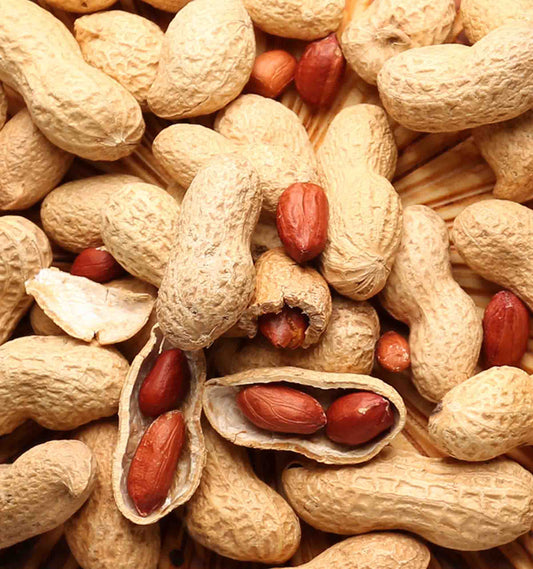Collection: Peanut Bird Feeders
Ensuring nutritional value for garden birds.
Peanuts remain one of the cleanest and easiest ways to attract and feed garden birds. And if you’re feeding peanuts, you should feed them from a good quality peanut feeder, to stop birds from taking large chunks of peanut which could be potentially harmful.
Shop our range of peanut bird feeders below:
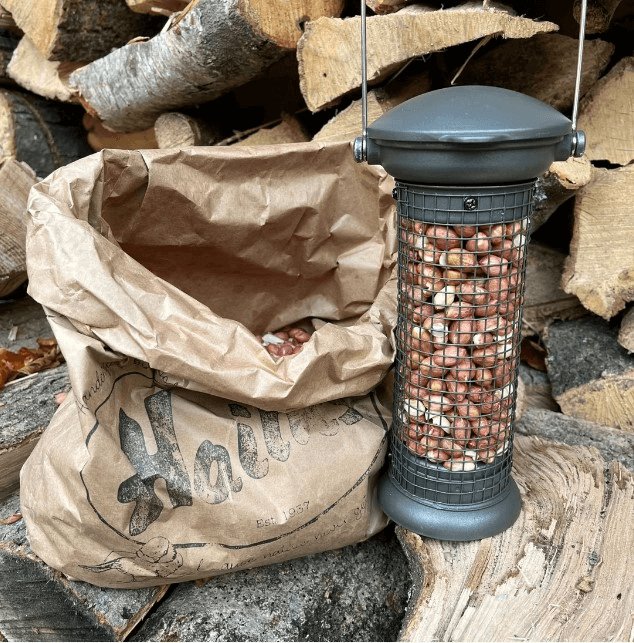
PRODUCTS
-
Squirrel Resistant Cage Peanut Bird Feeder
Vendor:HAITH'S to HOME5.0 / 5.0
(1) 1 total reviews
Regular price £15.96 GBPRegular priceUnit price / per£19.95 GBPSale price £15.96 GBPSave -
Heavy Duty Flick 'n' Click Peanut Bird Feeder
Vendor:HAITH'S to HOME4.83 / 5.0
(6) 6 total reviews
Regular price £14.99 GBPRegular priceUnit price / per£14.99 GBPSale price £14.99 GBP -
Flick 'n' Click Peanut Feeder
Vendor:HAITH'S to HOMERegular price £7.95 GBPRegular priceUnit price / per£7.95 GBPSale price £7.95 GBP -
Pewter Flick 'n' Click Metal Peanut Bird Feeder with FREE Cleaning Brush
Vendor:Haith’s Bird Food UKRegular price £13.99 GBPRegular priceUnit price / per£13.99 GBPSale price £13.99 GBP -
FlipTop Plastic Peanut Feeder
Vendor:HAITH'S to HOME5.0 / 5.0
(1) 1 total reviews
Regular price £5.99 GBPRegular priceUnit price / per£5.99 GBPSale price £5.99 GBP -
The Nuttery Squirrel-Resistant Peanut Bird Feeder
Vendor:HAITH'S to HOME3.0 / 5.0
(2) 2 total reviews
Regular price £34.99 GBPRegular priceUnit price / per£34.99 GBPSale price £34.99 GBP -
Ring Pull 'Click' Metal Peanut Feeder
Vendor:HAITH'S TO HOMERegular price From £27.99 GBPRegular priceUnit price / per£27.99 GBPSale price From £27.99 GBP -
All Weather Suet & Peanut Feeder
Vendor:HAITH'S to HOMERegular price £17.95 GBPRegular priceUnit price / per£17.95 GBPSale price £17.95 GBP -
Ring Pull Green Peanut Feeder 360mm
Vendor:Haith's Bird FoodRegular price £19.99 GBPRegular priceUnit price / per£19.99 GBPSale price £19.99 GBP -
Black Steel Peanut Feeder
Vendor:HAITH'S to HOMERegular price £9.99 GBPRegular priceUnit price / per£9.99 GBPSale price £9.99 GBP -
Ring Pull 'Click' Peanut Plus Feeder (for suet pellets & peanuts)
Vendor:HAITH'S TO HOME4.0 / 5.0
(1) 1 total reviews
Regular price From £33.99 GBPRegular priceUnit price / per£33.99 GBPSale price From £33.99 GBP
Don't forget to pick up a few peanuts...
-
Peanuts for Birds - Premium Quality Wild Bird Food
4.8 / 5.0
(103) 103 total reviews
Regular price From £4.28 GBPRegular priceUnit price / per£4.75 GBPSale price From £4.28 GBPSave -
Peanut Granules
5.0 / 5.0
(29) 29 total reviews
Regular price From £9.36 GBPRegular priceUnit price / per£9.36 GBPSale price From £9.36 GBP -
Monkey Nuts in Shells for garden birds
5.0 / 5.0
(2) 2 total reviews
Regular price From £16.04 GBPRegular priceUnit price / per£16.04 GBPSale price From £16.04 GBP
Benefits of Peanuts & Peanut Feeders:
-

Attract a variety of birds
Peanuts are a high-energy food that's loved by a wide variety of birds, including woodpeckers, blue tits, nuthatches, and more. A peanut bird feeder can help attract these species to your garden.
-

High nutritional value
Peanuts are a good source of fat and protein, which are essential for birds, especially during colder months when other food sources can be scarce.
-

Reduced mess
Many peanut feeders are designed to minimise waste and mess by only allowing birds to pull out small bits at a time, like Haith’s flick and click feeder.
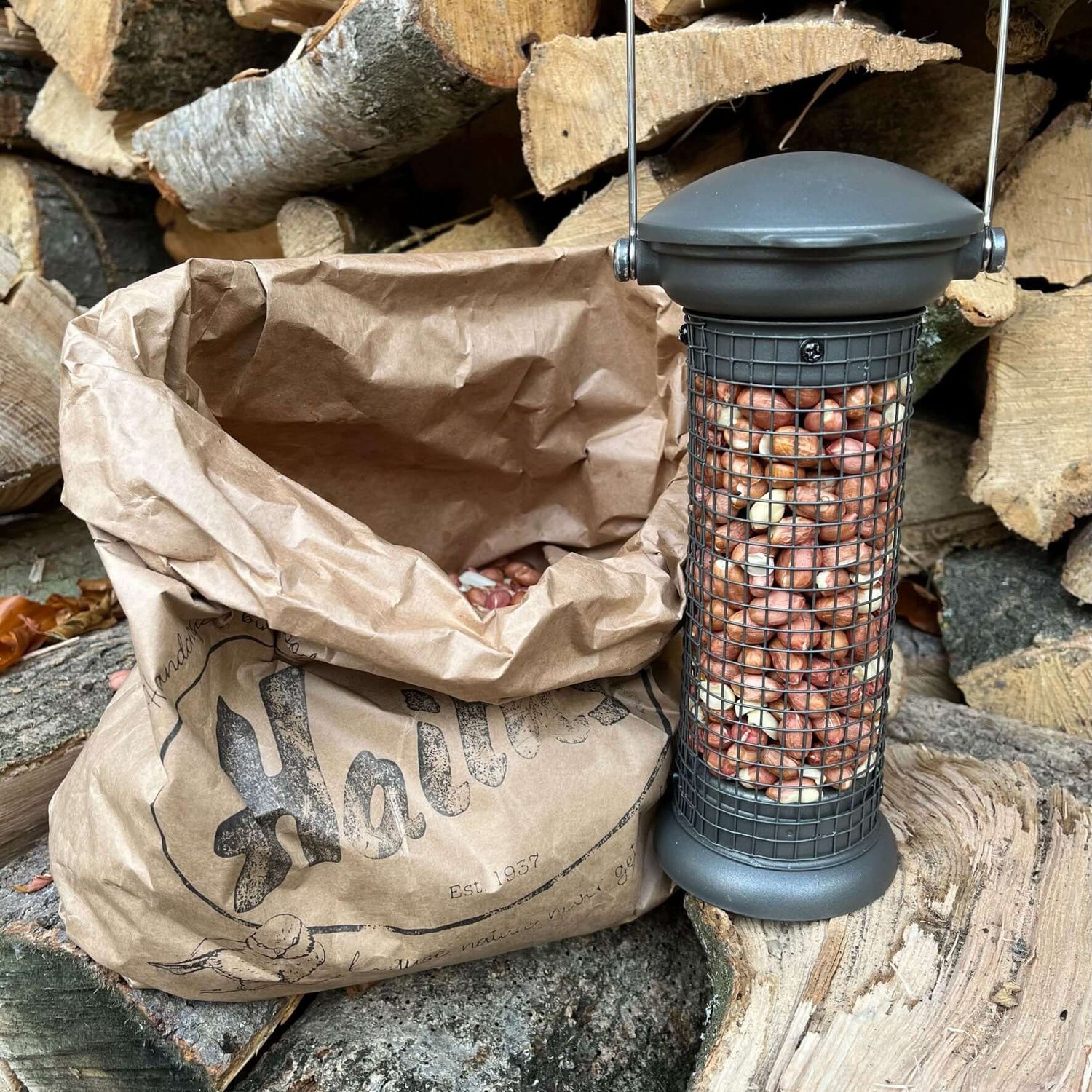
Year-round feeding
Peanuts are a great choice for feeding birds throughout the year, providing essential nutrients during the breeding season and much-needed energy during the winter months.
Squirrel resistant
A significant benefit of many peanut bird feeders is their squirrel-resistant design. Given that squirrels can be quite determined and clever when it comes to accessing bird feeders, a well-designed peanut bird feeder, like our squirrel resistant cage peanut feeder, can save you from the frustrations and costs of squirrels depleting the food meant for your bird visitors.
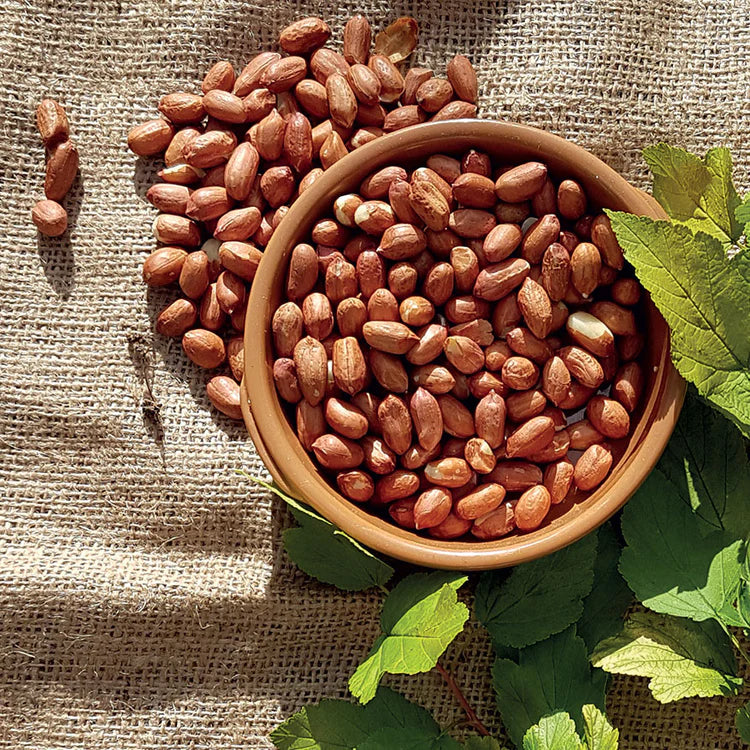
Haith’s peanut range
Shop our range of high quality peanuts, the perfect accompaniment for your peanut feeder: Peanuts for birds.
Peanut Bird Feeder FAQs
Are peanut feeders good for birds?
Peanut feeders can indeed be beneficial for birds. Peanuts are a rich source of fat and protein, which are essential nutrients for birds. These nutrients are particularly important during the colder months when other food sources might be scarce. By providing peanuts, you help birds maintain their energy levels and body heat.
However, always ensure that the peanuts you use are safe for bird consumption. They should be unsalted and unflavored, as additives used in peanuts intended for human consumption can be harmful to birds. Using a proper peanut feeder also helps birds to take the peanuts in small pieces, reducing the choking hazard.
At Haith’s, we offer a range of high-quality peanuts for wild birds and wildlife, available to buy in bulk.
Where do you put a peanut bird feeder?
A peanut bird feeder should be placed in a quiet and safe location that's easily visible to birds, ideally a spot with nearby trees or shrubs that birds can use as cover if they feel threatened. This could be in your garden, on a balcony, or in a courtyard.
The feeder should be hung from a branch or hook at least five feet above the ground to protect the birds from ground predators. Also, It's recommended to place the feeder at least 10-12 feet away from tree trunks or structures from which a squirrel or a cat could jump.
The feeder should also be placed where it is easy for you to access for cleaning and refilling. This can vary depending on your home's layout and your personal preferences. It might be just outside a window, on a porch, or in a tree in the yard where you can easily reach it. For more information on where to hang your feeder read our guide on hanging bird feeders.
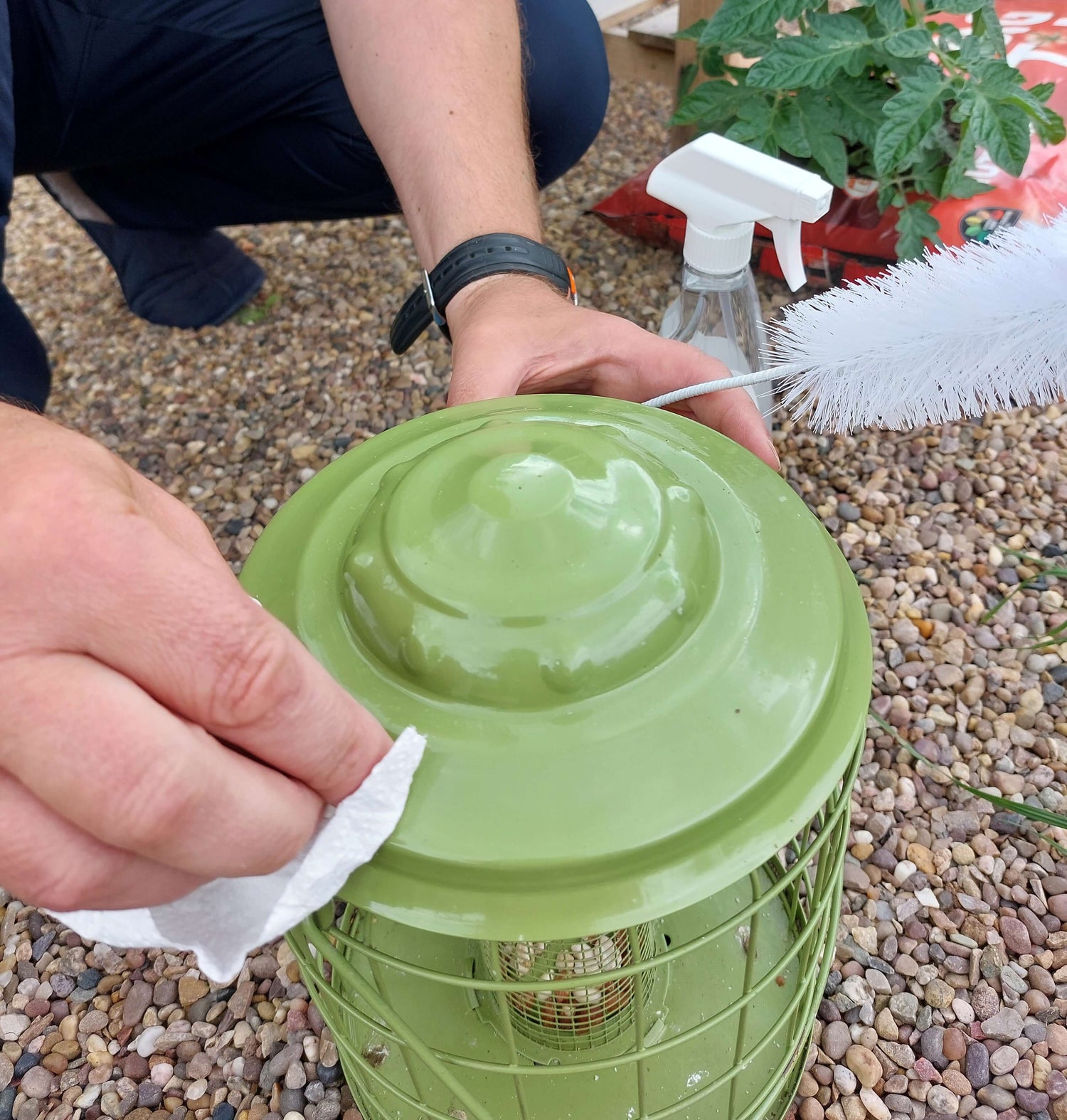
As a rule of thumb, it's good to check your feeder every few days, both to see if it needs to be refilled and to make sure the peanuts are still fresh. In addition, cleaning the bird feeder regularly (about once every two weeks) is recommended to prevent the build-up of bacteria or fungus which could potentially harm the birds.
Remember, always discard old or spoiled peanuts far away from the feeding area to prevent disease spread among your bird visitors.

